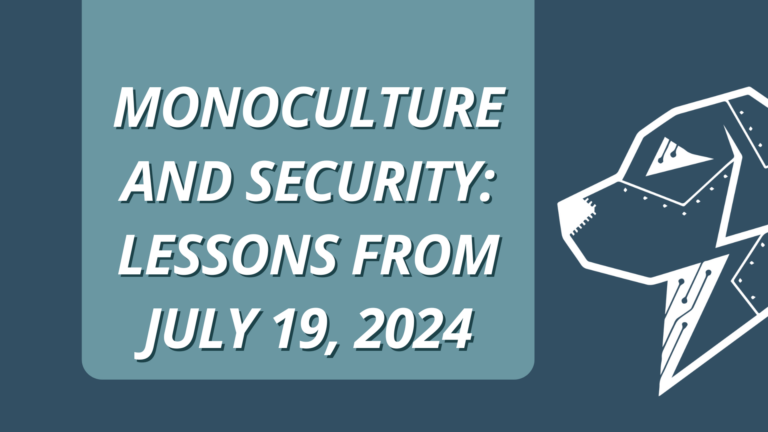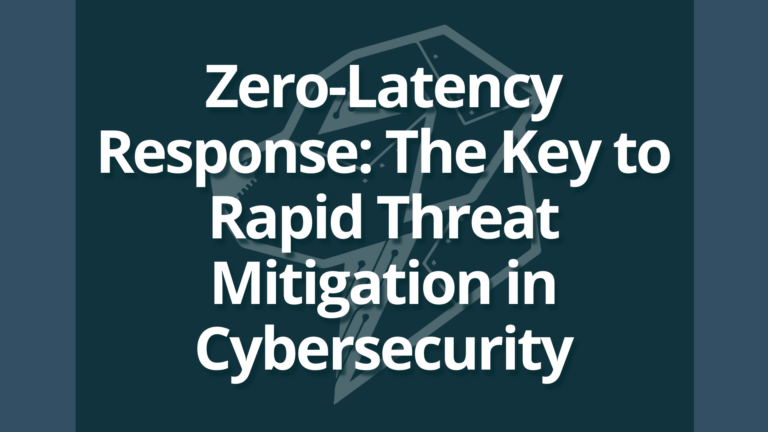When evaluating a Managed Detection and Response (MDR) vendor, it’s important to thoroughly assess their capabilities and ensure they meet the specific needs and requirements of your organization.
By asking about the vendor’s expertise, experience, service offerings, detection and response processes, threat intelligence sources, integration capabilities, and reporting capabilities, organizations can gain valuable insights into the vendor’s qualifications and determine if they align with their specific needs.
Making an informed decision in choosing MDR vendors is crucial for effectively protecting organizations from cyber threats.
The evaluation process should aim to gain a comprehensive understanding of the vendor’s expertise, approach to cyber security, and the value they can provide to your organization.
Listed below are some key questions and areas to focus on when discussing services with an MDR provider.
Why Choose Cybermaxx as your MDR Vendor?
With their proven track record in the MDR field and qualified team members, Cybermaxx demonstrates their capability to provide reliable threat detection and response services. Cybermaxx has worked with various industries, showcasing their ability to adapt to different environments.
Their MDR solution encompasses a wide range of services such as threat detection, incident response, threat hunting, vulnerability management, and proactive security monitoring. By using advanced technologies and tools for threat detection and analysis, Cybermaxx ensures a proactive approach to identifying and mitigating security threats effectively.
One reason to choose CyberMaxx as an MDR vendor is their comprehensive suite of services and technologies. This MDR service includes Blue Team, MDR, Fully Managed MDR, Co-Managed MDR, Proprietary Detection Library, Threat Hunting, and VRM.
These offerings enable CyberMaxx to effectively monitor cyber risk in an organization’s digital environment. By providing a range of solutions and tools, CyberMaxx can meet the diverse needs of different security teams. Their Blue Team technology allows for proactive threat detection and response, while their MDR solution offers 24/7 monitoring and management. With fully managed and co-managed options available, organizations have the flexibility to choose the level of support that best suits their requirements. CyberMaxx’s proprietary detection library and threat hunting capabilities ensure that potential risks are promptly identified and addressed.
Expertise and Experience
-
How long have you been providing MDR services?
This question helps gauge the vendor’s level of experience and stability in the MDR field. Look for vendors with proven track records and experience.
-
Can you provide details about your team’s qualifications and experience?
Understanding the vendor’s familiarity with your industry or similar environments is essential. A vendor with relevant experience is better equipped to address your specific needs.
-
What industries have you worked with, and do you have experience in our specific industry?
Request case studies or success stories that highlight the vendor’s ability to detect and respond to threats effectively. These examples can demonstrate their experience in handling incidents, their problem-solving approach, and the impact of their services on organizations similar to yours.
Service Offerings and Capabilities
-
What specific services are included in your MDR offering?
This question helps you understand the breadth and depth of the vendor’s MDR services, such as threat detection, incident response, threat hunting, vulnerability management, and proactive security monitoring.
-
Do you provide 24/7 monitoring and incident response?
Ensure that the vendor offers round-the-clock monitoring by a dedicated Security Operations Center (SOC) and has the capability to promptly respond to security incidents.
-
What technologies, tools, and platforms do you use for threat detection and response?
Inquire about the specific technologies and tools the vendor employs for threat detection, analysis, and response. This could include log monitoring systems, endpoint detection and response (EDR) solutions, behavior analytics, threat intelligence platforms, and other relevant security technologies.
-
How do you stay updated with the latest threat intelligence?
Ask the vendor about their methods for staying updated with the latest threat intelligence. They should have established relationships with threat intelligence providers, access to relevant feeds and sources, and a process for analyzing and incorporating threat intelligence into their detection and response activities.
Detection and Response Processes
-
How do you detect and analyze security threats and incidents?
Inquire about their monitoring capabilities, the data sources they analyze, and their ability to identify and respond to various types of threats.
-
Can you explain your incident response procedures and how you prioritize and escalate incidents?
Request a detailed explanation of the vendor’s incident response procedures. They should have a well-defined and documented process for responding to security incidents.
-
What is your average response time and resolution time for different types of incidents?
Inquire about the vendor’s average response time and resolution time for different types of incidents. This will help you understand their efficiency in addressing security issues. Ask for specific timeframes for critical, high, medium, and low-severity incidents.
-
Do you provide guidance on incident remediation and recovery?
Inquire about their involvement in helping your organization recover from security incidents. They should offer recommendations, best practices, and assistance in remediating vulnerabilities and implementing measures to prevent future incidents.
Threat Intelligence
-
How do you gather and utilize threat intelligence in your MDR operations?
Inquire about the vendor’s processes for gathering and utilizing threat intelligence. They should have a systematic approach that involves collecting data from various sources, analyzing it for potential threats, and applying it to their detection and response activities.
-
What sources do you rely on for threat intelligence?
Ask the vendor to provide insights into the sources they rely on for threat intelligence. These sources can include commercial threat intelligence feeds, open-source intelligence, security research organizations, threat intelligence sharing communities, and their own proprietary research.
-
How do you ensure that threat intelligence is relevant and up to date?
Ask about their processes for validating and vetting the information they receive, as well as their mechanisms for filtering out false positives and false negatives. Inquire about their frequency of updates and how they stay abreast of emerging threats to ensure their intelligence is up to date.
-
Do you offer proactive threat-hunting services to identify unknown threats?
Inquire if the vendor offers proactive threat hunting services, where they actively search for hidden or unknown threats within your environment. Ask about their methodologies, tools, and expertise involved in identifying and mitigating potential threats before they become incidents.
Integration and Compatibility
-
How do you integrate with our existing security infrastructure, such as log monitoring systems, firewalls, or endpoint security solutions?
Inquire about the vendor’s integration capabilities and their ability to work with your existing security infrastructure. Ask about their experience integrating with specific systems or technologies you have in place, such as log monitoring systems, firewalls, intrusion detection/prevention systems, or endpoint security solutions.
-
Are there any specific technology or system requirements for implementing your MDR services?
Understand if there are any specific technology or system requirements for implementing the vendor’s MDR services. This can include hardware, software, network configurations, or any other prerequisites. It’s important to ensure that your organization meets these requirements and can support the implementation of their services effectively.
-
Can you provide examples of successful integrations with similar organizations?
Ask the vendor to provide examples or case studies of successful integrations they have conducted with organizations similar to yours. This will help you gauge their experience and expertise in integrating their MDR services with different security infrastructures.
Reporting and Metrics
-
What types of reports and metrics do you provide to clients?
Inquire about the vendor’s reporting capabilities and the types of reports and metrics they offer. This can include executive summaries, incident reports, threat intelligence summaries, trend analyses, compliance reports, and more.
-
How often do you deliver reports, and what level of detail can we expect?
Ask about the frequency of report delivery and the level of detail provided. Some vendors provide regular monthly or quarterly reports, while others may offer real-time reporting. Inquire about the depth of information included in the reports, such as incident details, threat trends, response actions, and any relevant metrics or key performance indicators (KPIs).
-
Can you customize reports based on our specific needs or compliance requirements?
Understand if the vendor offers customization options for reports. Different organizations have unique reporting needs and compliance requirements. Inquire if they can tailor reports to align with your specific requirements.
-
Do you offer real-time dashboards or portals for monitoring and tracking incidents?
Inquire about the availability of real-time dashboards or portals for monitoring and tracking incidents. Some vendors provide web-based interfaces or portals where you can access real-time information about ongoing incidents, view dashboards with key metrics, and track the progress of incident response activities.
Compliance and Regulations
-
How do your MDR services align with relevant compliance standards in our industry?
Inquire about the vendor’s understanding of compliance standards specific to your industry, such as HIPAA, GDPR, PCI-DSS, or others. They should have a clear understanding of the requirements and be able to articulate how their MDR services align with those standards.
-
Can you provide evidence of your compliance certifications or audits?
Request evidence of the vendor’s compliance certifications or audits. They may have undergone external audits or obtained certifications relevant to the MDR services they provide. Examples of such certifications include SOC 2 Type II, ISO 27001, or specific industry-specific certifications.
-
Do you assist in compliance reporting or audits?
Inquire about the vendor’s level of assistance in compliance reporting or audits. They should be able to provide guidance, support, and documentation to help you fulfill your compliance obligations. Ask if they help in preparing reports, responding to audit requests, or participating in compliance audits as a service provider.
Service Level Agreements (SLAs) and Contracts
-
What are your SLAs for response times, incident resolution, and availability?
Inquire about the vendor’s SLAs for response times, incident resolution, and availability. Ask about their target response times for acknowledging and starting to work on an incident, their average and maximum incident resolution times, and the availability or uptime guarantee for their services.
-
How are SLAs measured and reported?
Ask about the vendor’s process for measuring and reporting SLAs. They should have mechanisms in place to accurately track and report SLA performance. Inquire about the metrics they use, the reporting frequency, and whether they provide real-time or periodic reports on SLA performance.
-
What is the process for contract negotiation and termination?
Understand the vendor’s process for contract negotiation and termination. Inquire about the flexibility of contract terms, any negotiation points, and the ability to customize the contract to suit your specific needs. Additionally, ask about the termination clauses, notice periods, and any potential penalties or ramifications associated with early termination.
-
Are there any additional costs or fees beyond the base MDR services?
Inquire about any additional costs or fees that may be associated with the base MDR services. Some vendors may charge extra for incident response, forensic investigations, or certain specialized services. Clarify if there are any potential hidden costs beyond the agreed-upon pricing to ensure transparency and budget planning.
References and Customer Satisfaction
-
Can you provide references from current or previous clients?
Ask the vendor if they can provide references from their current or previous clients. This will allow you to get insights from organizations that have firsthand experience with the vendor’s MDR services.
-
Have you received any industry recognition or awards for your MDR services?
Inquire if the vendor has received any industry recognition or awards for their MDR services. Recognition from industry organizations or awards can provide an indication of their expertise, reliability, and quality of service.
-
What is your customer retention rate, and how do you measure customer satisfaction?
Ask about the vendor’s customer retention rate, which reflects the percentage of clients that continue to engage their services over time. A high customer retention rate indicates customer satisfaction and trust in their services. Additionally, inquire about how they measure customer satisfaction, such as through surveys, feedback mechanisms, or other methods to gauge client sentiment and identify areas for improvement.
MDR Solution with Cybermaxx
When evaluating an MDR solution, it is important to consider the capabilities and offerings of the provider, such as their expertise, experience, service offerings, detection and response processes, threat intelligence utilization, integration compatibility, and reporting metrics.
With CyberMaxx as your MDR provider, you can expect:
- Proactive threat detection and response capabilities
- Skilled staff with expertise in rapid detection and response
- Turnkey delivery and integration for a seamless implementation process
By choosing CyberMaxx’s MDR service, organizations can benefit from a holistic approach to cybersecurity that combines advanced technology with human-driven expertise.
With 24/7 monitoring and management from their security operations center team, customers can have peace of mind knowing that their digital environment is being safeguarded against potential risks and vulnerabilities.
The inclusion of offensive security services helps to tune key areas where security incidents often occur. Trust in CyberMaxx’s MDR solution to provide the necessary tools and support for effective threat disruption and containment.
Frequently Asked Questions:
Can CyberMaxx’s MDR solution integrate with existing security tools and platforms?
Yes, CyberMaxx’s Managed Detection and Response (MDR) solution can integrate with existing security tools and platforms. Customers have the flexibility to deploy CyberMaxx’s MDR using either their proprietary platform or third-party tools.
Both deployment options provide the same level of support and capabilities, including 24/7 monitoring and management, response and triage of alerts, a proprietary detection library, and offensive security services.
This integration capability allows organizations to leverage their existing security investments while benefiting from CyberMaxx’s comprehensive MDR expertise.
How does CyberMaxx’s threat research team stay updated on the latest cyber threats and trends?
CyberMaxx’s threat research team stays updated on the latest cyber threats and trends through various methods.
They continuously monitor global cybersecurity forums, industry news sources, and online communities to gather information on emerging threats.
Additionally, they collaborate with other cybersecurity experts and participate in conferences and workshops to stay informed about the evolving threat landscape.
This proactive approach ensures that CyberMaxx remains well-informed and equipped to identify and respond effectively to new cyber threats.
What types of offensive security services does CyberMaxx offer to enhance security incident detection and prevention?
CyberMaxx offers offensive security services to enhance security incident detection and prevention. These services focus on areas where security incidents often occur.
By employing a human-driven, technology-assisted approach called Managed Detection and Response (MDR), CyberMaxx provides:
- 24/7 SOC functions
- Immediate remote mitigative response
- Skilled staff & security team
- Comprehensive support
- Rapid detection and response expertise
- Turnkey delivery and integration
- Threat hunting
- A proprietary advanced detection library
These services aim to deliver threat disruption and containment for organizations seeking enhanced protection against cyber threats.
How does CyberMaxx ensure compliance with changing regulatory requirements and standards?
CyberMaxx ensures compliance with changing regulatory requirements and standards through various activities. These include:
- Monitoring, governance, risk management, and compliance (GRC)
- Penetration testing
- Vulnerability scanning
- Continuous monitoring of the organization’s digital environment for potential risks and vulnerabilities
Additionally, CyberMaxx offers technologies and services such as:
- Blue Team AV/EDR Management
- SCM
- Firewall/WAF management
- Network monitoring
- Digital Forensics & Incident Response (DFIR)
These services help manage an organization’s digital risk in accordance with regulatory guidelines.
Conclusion
Asking these questions will help you evaluate the capabilities, compatibility, and reliability of the MDR vendor and determine if their services align with your organization’s security requirements. Additionally, it’s critical to ask any specific questions that are relevant to your unique business environment and cybersecurity needs.
When selecting a Managed Detection and Response (MDR) vendor, it is important to ask the right questions to ensure the best fit for your organization’s needs.
Cybermaxx stands out as a leading MDR provider with their advanced detection library, 24/7 coverage through its SOC team, and flexible deployment options.
Their monitoring and management services, along with response and triage of alerts, provide enhanced protection against cyber threats.
With the complexity of the compliance landscape and increasing cyber threats, choosing the right MDR vendor like Cybermaxx is essential for effective threat detection and containment.
Choosing the right MDR vendor is crucial for protecting sensitive data and maintaining robust cybersecurity measures.





